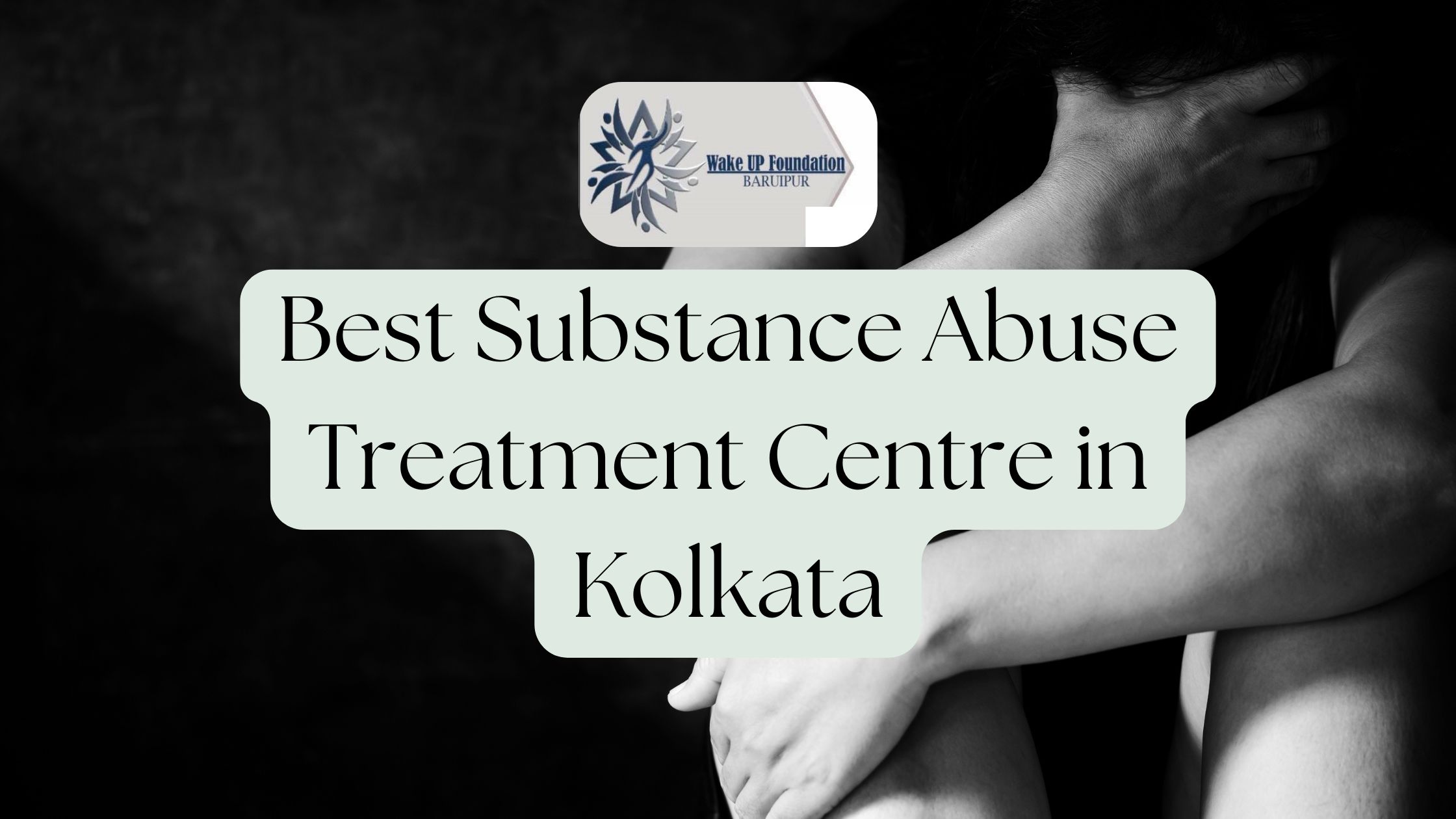Mental health is one of the biggest challenges that humanity has been facing for many decades. In the older periods, such mental issues were not treated with kindness. Many women back in the day, would face psychological traumas due to various oppression. They would suffer from severe anxiety and depression but due to the lack of knowledge, people would treat it as hysteria or madness. But not only women, men also suffered a similar fate. But today, mental health is a subject of much more seriouslness. Still, there is a lot of hush-hush and stigma around mental health and this is where Wake Up Foundation is taking important initiative to make things better. This blog will explore why a mental rehab centre in Kolkata is necessary and why Wake Up Foundation is the best choice!
Mental Health Treatment Centre in Kolkata: Various Types of Mental Disorders
| Name of Disorder | Cause | Effect |
|---|---|---|
| Mood Disorders | The development of mood disorders can be attributed to a complex interaction of brain chemistry, life experiences, and genetics. Factors such as substance abuse, persistent stress, and traumatic events can increase the likelihood of experiencing a mood disorder. | Mood disorders can lead to a variety of emotional and physical problems, including feelings of depression or hopelessness, altered eating or sleeping habits, difficulty concentrating, and diminished interest in once enjoyable activities. |
| Anxiety Disorders | Environmental influences, brain chemistry, and genetic predispositions are all contributing factors to anxiety disorders. These disorders may develop due to trauma, stress, and certain medical conditions. | Anxiety disorders can cause numerous physical symptoms such as fatigue, dizziness, shortness of breath, and a rapid heartbeat. They can also lead to substance abuse, workplace challenges, and social difficulties. |
| Personality Disorders | Both environmental and genetic factors are thought to contribute to the emergence of personality disorders. Childhood abuse and trauma may increase the risk of developing such disorders. | A complex mix of genetics, psychology, and social factors can cause eating disorders. |
| Psychotic Disorders | While the exact causes of psychotic disorders remain unclear, they are believed to result from a mix of environmental influences, genetic predisposition, and brain chemistry. | A range of symptoms, such as delusions, disorganized thinking, and hallucinations, are often linked to psychotic disorders. These symptoms can make it challenging for individuals with psychotic disorders to manage their daily activities. |
| Eating Disorders | Exposure to a traumatic event is the cause of PTSD. This experience can be psychological or physical, and may involve direct personal experience or witnessing the event. | Exposure to a traumatic event is the cause of PTSD. This experience can be psychological or physical and may involve direct personal experience or witnessing the event. |
| Obsessive-Compulsive Disorder (OCD) | While the exact causes of OCD remain unclear, it is believed that a mix of environmental influences, brain chemistry, and genetic factors may contribute to its development. | Concentration challenges, interpersonal disputes, and professional obstacles are among the issues that OCD can cause. Compulsive behaviors may consume hours of a person’s day who has OCD. |
| Post-Traumatic Stress Disorder (PTSD) | Concentration challenges, interpersonal disputes, and professional obstacles are among the issues that OCD can cause. Compulsive behaviours may consume hours of a person’s day who has OCD. | Numerous symptoms, including nightmares, anxiety, flashbacks, and an avoidance of reminders of the event, can result from post-traumatic stress disorder (PTSD). PTSD may also hinder one’s ability to trust others, maintain relationships, and manage daily activities. |
depression treatment centre in Kolkata: How Bad is the condition of mental health in India?
1 in 5 Indians suffer from some form of mental health disorder. Depression and anxiety are among the most common conditions. Furthermore, India has one of the highest rates of suicide globally. About 1.71 lakh suicides were recorded in 2022, registering a 4.2% increase over 2021 and a jump of 27% compared to 2018. Moreover, the sad part is that only 1 in 10 people with mental health issues receive evidence-based treatment. This has led to $1.03 trillion in economic loss between 2012 and 2030. According to statistics, 970 million individuals worldwide suffer from some form of mental illness; 50% of mental health disorders start by the age of 14, and 75% by the age of 24. Mental disorders impact one in four individuals at some stage in their lives. Annually, mental health conditions are responsible for approximately 8 million deaths, which constitutes 14.3% of global fatalities.
mental rehabilitation centre in Kolkata: How Can This battle be fought?
Over the many years of constant campaigns and raising awareness among people, people in society are fighting back against the stigma. With the right care, many people are finding their way to happiness. Depression is as fatal as cancer, both grow and take their victim’s life. Fighting against them is tough but not impossible as the light at the end of the tunnel. Every best mental rehab centre in Kolkata will recommend some of the following processes that help fight against mental illness.
| Therapies | Process |
|---|---|
| Psychotherapy | Often known as talk therapy, psychotherapy involves delving into an individual’s thoughts, feelings, and behaviours with the assistance of a mental health professional. Psychotherapy is available in many different forms, and the appropriate method of treatment depends on the person’s specific circumstances. |
| Medication | Medication can be an effective treatment for a range of mental health conditions, as it has the ability to regulate brain chemistry and reduce symptoms. However, it is important to be aware that these medications can also have various side effects. |
| Transcranial Magnetic Stimulation (TMS) | TMS, or transcranial magnetic stimulation, is a newer therapy that treats depression and other conditions by stimulating the brain with magnetic pulses. |
| Mindfulness-Based Therapies | Mindfulness-based therapies, including meditation and yoga, assist individuals in concentrating on the present moment and accepting their thoughts and emotions without judgment. |
| Electroconvulsive Therapy (ECT) | ECT is a safe and effective method for treating severe depression and various mental health issues. It entails the application of a minor electrical current through the brain. |
| Lifestyle Modifications | Improving the lifestyle of a person experiencing distress can also benefit their mental health. This includes adopting a balanced diet, engaging in regular exercise, ensuring sufficient sleep, and managing stress effectively. |
| Support Groups | Joining a support group provides a secure and supportive environment for individuals to connect with others who are facing similar challenges. |

What Makes Wake Up Foundation the best mental health recovery centre in Kolkata?
Wake Up Foundation, being the best mental rehab centrein Kolkata, takes every necessary step to help our patients to come back to life. Everyone deserves happiness and it is our mission to make this dream come true. That is why we have tailored our services to make best recovery by giving the following remedies:
- Structured Environment: The best mental rehab centre in Kolkata provides a safe, controlled setting away from triggers and stresses that may exacerbate mental health issues.
- Professional Support: Offering access to the best psychiatrists, psychologists, therapists, and other mental health professionals for individualized care.
- Therapeutic Interventions: We include a variety of therapies such as cognitive-behavioral therapy (CBT), group therapy, and mindfulness practices tailored to individual needs.
- Medication Management: Ensuring proper administration and monitoring of medications, helping to stabilize mental health conditions.
- Peer Support: Encouraging interaction with others going through similar challenges, fostering a sense of community and understanding.
- Holistic Care: Incorporating physical health, nutrition, and exercise into recovery plans to support overall well-being.
- Routine and Stability: Providing a consistent daily schedule, which can be crucial in regaining a sense of normalcy and control.
- Education and Skill-Building: We teach coping strategies, stress management techniques, and life skills to help individuals manage their conditions long-term.
- Family Involvement: We often include family therapy and education to improve relationships and create a supportive home environment.
- Aftercare Planning: The best mental rehab centre in Kolkata Developing a comprehensive plan for continued support and treatment after leaving the facility to prevent relapse.
Conclusion
Never feel alone when fighting against mental illness, this battle cannot be fought without help from the people around you. Family, friends and other loved ones are obvious supports, but you need a mental rehabilitation centre to help you. A mental recovery centre in Kolkata can give you the guidance and direction to tackle your traumas and insecurities and look to the bright side. Wake Up foundation believes in pure optimism and we reflect this thought process in our healing programmes. Therefore, if you are anyone you know, going through such tough times, Wake Up Foundation, the best mental rehab centre in Kolkata is the right place for you. There are also other problems that many people suffer from, and we provide possible remedies from those like, deaddiction, drug treatment, nasha mukti kendra and best rehab in our city.
FAQs
- What is a mental disorder?
- A mental disorder is characterized by a clinically significant disturbance in an individual’s cognition, emotional regulation, or behavior. It is usually associated with distress or impairment in important areas of functioning.
- How common are mental disorders?
- Mental disorders are quite prevalent worldwide. According to the National Institute of Mental Health, more than one in five adults in India live with a mental illness. The World Health Organization reports that one in every eight people globally live with a mental disorder, with anxiety and depressive disorders being the most common.
- What causes mental disorders?
- The origins of mental disorders are diverse and depend on the particular condition. They can stem from a complex interplay of factors such as genetics, brain chemistry, life experiences, and environmental influences.
- What are the symptoms of mental disorders?
- Feeling sad or hopeless
- Anxiety or worry
- Changes in appetite or sleep
- Difficulty concentrating
- Withdrawing from social activities
- Hallucinations or delusions
- Thoughts of suicide
- What are the types of mental disorders?
- Mood Disorders: These conditions primarily affect a person’s mood, such as depression or bipolar disorder.
- Anxiety Disorders: These conditions are characterized by excessive worry and fear.
- Personality Disorders: These conditions are characterized by inflexible and maladaptive patterns of thinking, feeling, and behaving.
- Psychotic Disorders: These conditions are characterized by a loss of contact with reality, such as schizophrenia.
- Eating Disorders: These conditions are characterized by unhealthy eating habits and a distorted body image, such as anorexia nervosa or bulimia nervosa.
- Obsessive-Compulsive Disorder (OCD): This condition is characterized by intrusive thoughts and repetitive behaviours.
- Post-Traumatic Stress Disorder (PTSD): This condition can develop after a person experiences or witnesses a traumatic event.
- How do mental disorders get treatment?
- Psychotherapy (talk therapy)
- Medication
- Lifestyle changes
- Support groups





